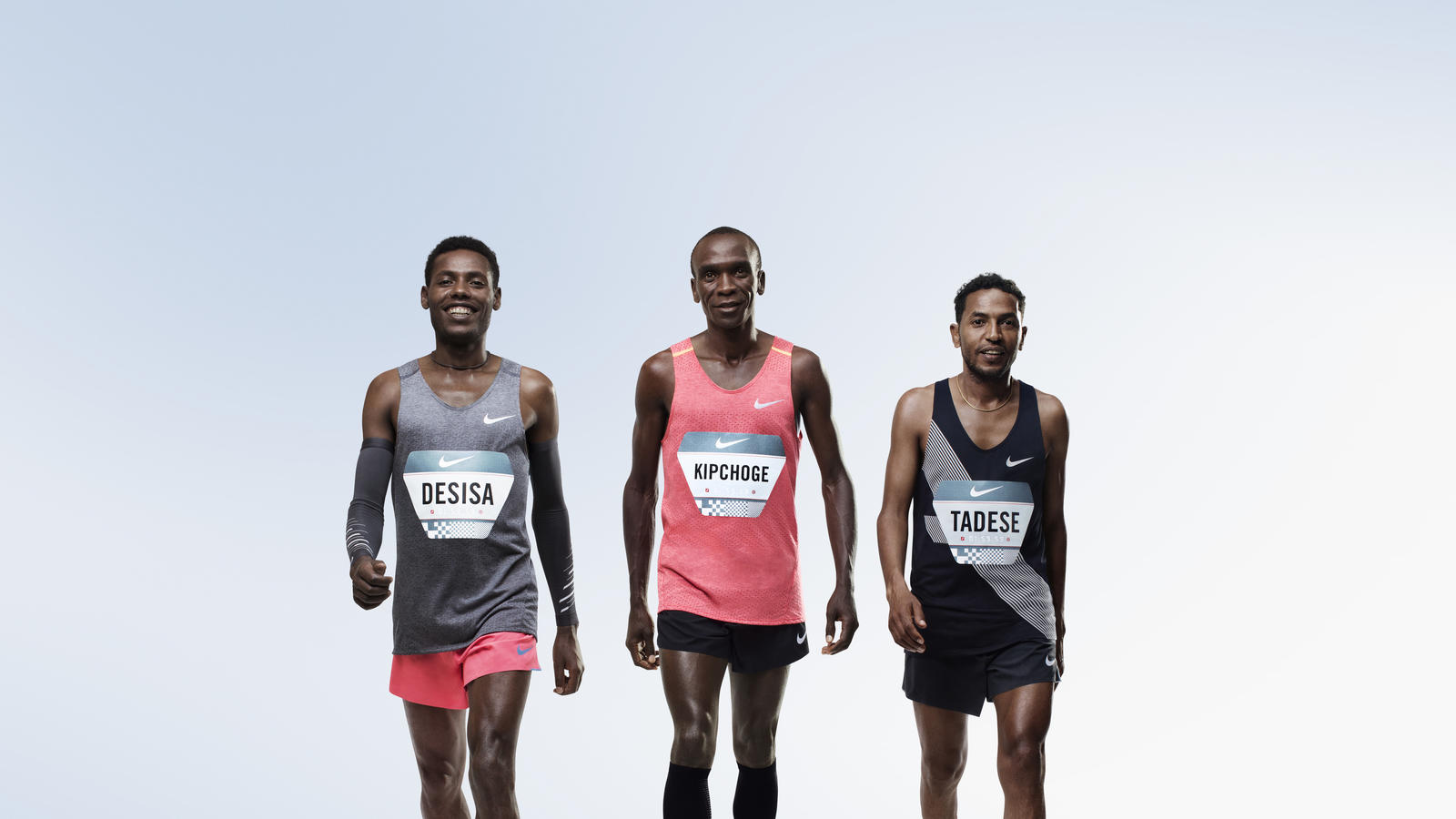Alex Hutchinson, Reid Coolsaet on the likelihood of a 1:59:59 marathon
Listen as Alex Hutchinson, Reid Coolsaet and Michael Joyner discussed the likelihood of a sub-two-hour marathon on CBC Radio on Monday morning.


Canadian Running senior editor Alex Hutchinson, popularly known as Sweat Science on social media, and Reid Coolsaet appeared on CBC Radio with Anna Maria Tremonti on Monday morning. Dr. Michael J. Joyner joined the two Canadians to discuss the background and likelihood of a sub-two-hour marathon in 2017 and beyond.
RELATED: Lanni Marchant on advocacy, gender and double standards in sports on CBC Radio.
The possibility of a 1:59:59 marathon has become a hot topic in recent weeks after it was publicly announced that Nike would be staging a sub-two marathon attempt in 2017 featuring three accomplished East African marathon runners. The Wall Street Journal reported that Adidas is working on a similar project.
Full interview (marathon discussion begins at 22 minutes)
Coolsaet is Canada’s second-fastest marathon runner in history, with a lifetime best of 2:10:28. The world record in the men’s marathon is 2:02:57 and a 2.5 per cent improvement is required for a runner to break the two-hour barrier over the 42.195K distance. Interestingly, Joyner notes in the interview that Paula Radcliffe’s women’s marathon world record of 2:15:25 is “perhaps the most exceptional record out there and essentially the physiological equivalent to a sub-two-hour marathon for men.” Radcliffe’s record was run on a record-eligible course, London in 2003.
The interview starts off with commentary from Hutchinson, who writes the latest in sports science for Canadian Running, as he has been given insider access to Nike’s Breaking2 project. “The key thing is that Nike will control as many variables as they can,” he says. “Both environmental and in terms of how they outfit the athletes.”
Three Nike athletes, Eritrea’s Zersenay Tadese, Kenya’s Eliud Kipchoge and Ethiopia’s Lelisa Desisa, pictured at the top of this page, are expected to attempt a sub-two-hour marathon as early as this spring. The location and time is not yet determined as the timing will be influenced by weather. The attempt will not be part of a major race like the London Marathon, for example.
Kipchoge is the men’s marathon champion from Rio, Desisa is a two-time Boston Marathon champion and Tadese is the half-marathon world record holder.
The interview then transitions to insight from Joyner, who in 1991 suggested that a sub-two-hour marathon may be physiologically possible given ideal conditions. He is a physician and researcher at the Mayo Clinic based in Rochester, Minn. He notes that the idea of a two-hour marathon is currently a daunting task because it requires a 2.5 per cent improvement of a “relatively mature record.”
“I think it’s possible to run in the 2:01s right now and then the fun begins,” Joyner says.
RELATED: Nike to stage sub-two-hour marathon attempt in 2017.
The third person on the panel is Coolsaet, who says “it’s very exciting that we’re talking about it,” when asked of his thoughts on the sub-two-hour marathon. “It’s about 25 years away on a record eligible course,” he thinks. Coolsaet talks about where athletes could gain valuable seconds on the world record and discusses the use of pacers, athletes who run portions of a race to set the tempo but drop out before finishing.
“I think so,” Coolsaet says when asked whether the attempt is good for the sport. “It allows your imagination to flow.”


